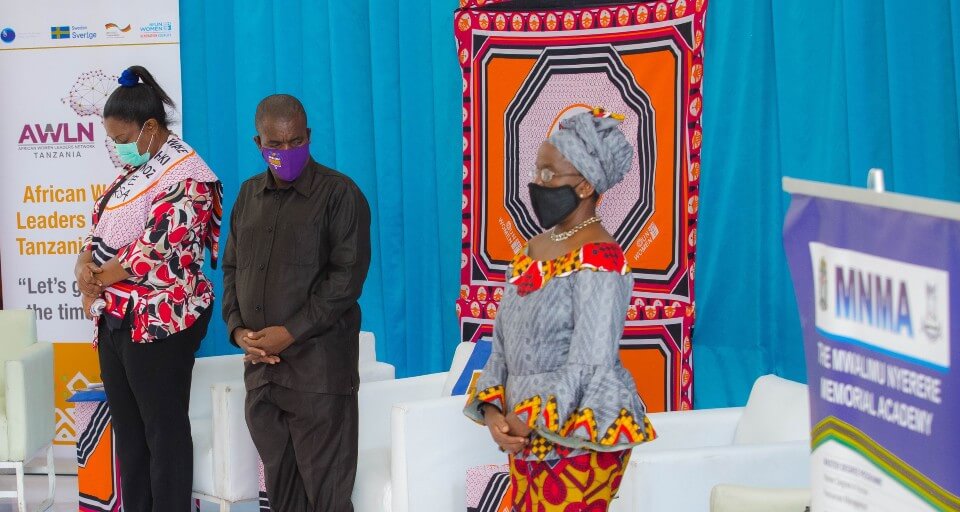Women leaders in Tanzania mark International Women’s Day demanding women’s meaningful participation in peace and security
Date:

Ahead of International Women’s Day, representatives of Tanzania’s government, civil society, development practitioners and youth organizations joined the national chapter of the African Women Leaders Network (AWLN Tanzania) calling for the greater inclusion of women in peace processes as an imperative.
On 6 March 2021, AWLN Tanzania and the Mwalimu Nyerere Memorial Academy convened an inter-generational dialogue in Dar es Salaam, Tanzania with the support of UN Women to discuss women’s meaningful participation in decision-making in peacebuilding and peacekeeping.
Launched at the regional level in 2017, the African Women Leaders Network was established to harness the wealth of African women’s experiences of leadership and enhance their contributions to sustainable development by bringing together women leaders from the grassroots to the highest levels of decision-making.
In her opening remarks, the Co-Chair of AWLN Tanzania’s Steering Committee Mary Rusimbi highlighted the network’s aspirations to promote women’s leadership at all levels of public life.
“From the community level to the district and up to the national level and beyond our borders, we need women’s voices to penetrate through the whole system and contribute to it in ways that are both consistent and substantive,” said Rusimbi.
Several speakers expressed concern that although women have a long history of active participation in preventing and resolving conflict, and despite the demonstrated benefits of women’s inclusion, women continue to be sidelined from formal peace processes.
“When women participate, peace agreements are more likely to last more than 15 years,” said the Canadian Ambassador to Tanzania, Pamela O’Donnell, adding that coordination and inclusiveness, as well as clear targets and measurable results are critical to achieving greater levels of women’s participation.
Tanzania is one of several countries that have taken concrete steps in advancing women’s meaningful participation in peace processes.
“This is one of the areas in which UN Women is proud to support, along with other partners, as part of our efforts to translate the women, peace and security agenda from policy to practice,” said UN Women Tanzania Representative Hodan Addou.
In 2020, Tanzania initiated the development of its first National Action Plan on the implementation of the landmark UN Security Council resolution 1325 on women, peace and security. With the generous support of the governments of Sweden, Denmark and Canada, UN Women supported the Government of Tanzania and the Mwalimu Nyerere Foundation in the first phase of the Plan’s development in 2020 and will continue to provide technical assistance in 2021.
The adoption of a National Action Plan will mark an important step in the localization and full implementation of resolution 1325, outlining concrete actions to strengthen women’s participation, protection, conflict prevention and post-conflict peace-building.
Going forward, the Chair of AWLN Tanzania’s peace and security pillar, Ambassador Liberata Mulamula said, AWLN will continue to play an active role in bringing key actors together to explore new strategies and solutions for women’s increased participation: continuous advocacy and monitoring of the implementation of resolution 1325 will remain central to the work of AWLN Tanzania, with UN Women’s support.